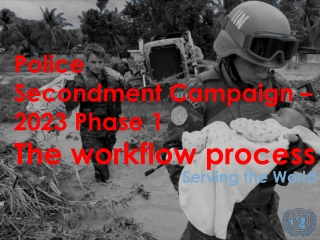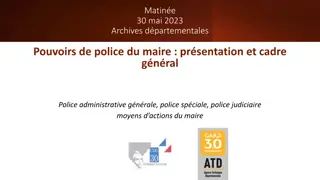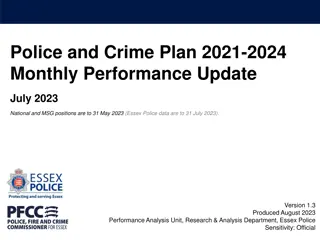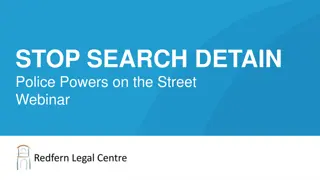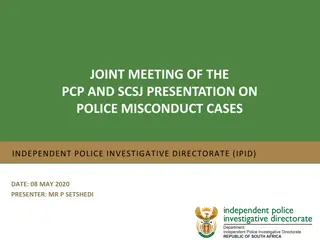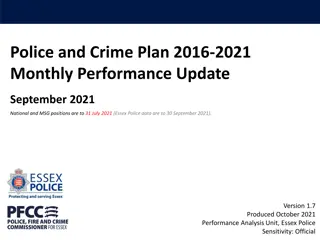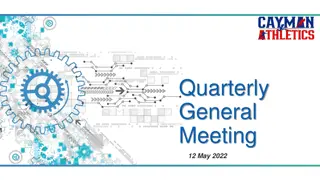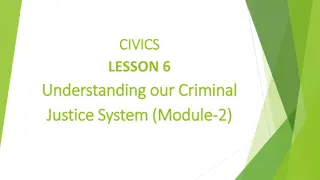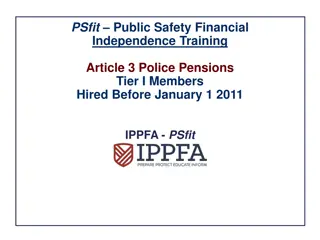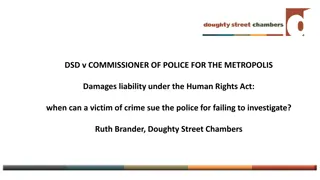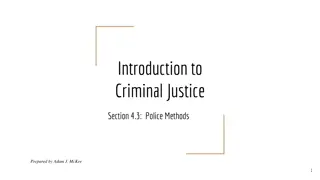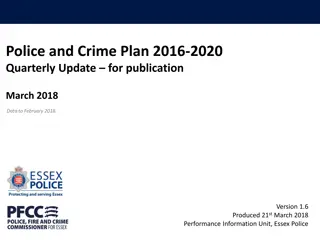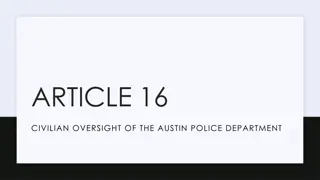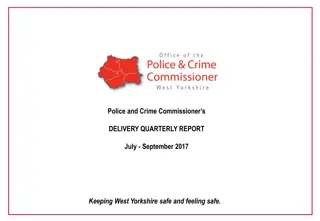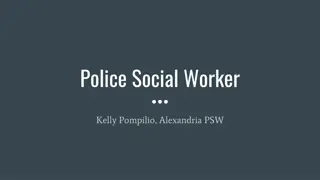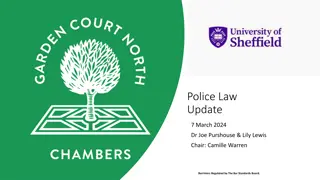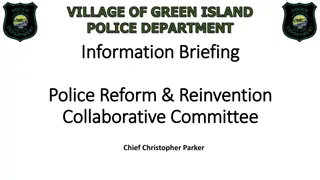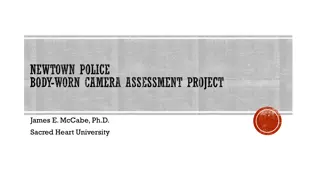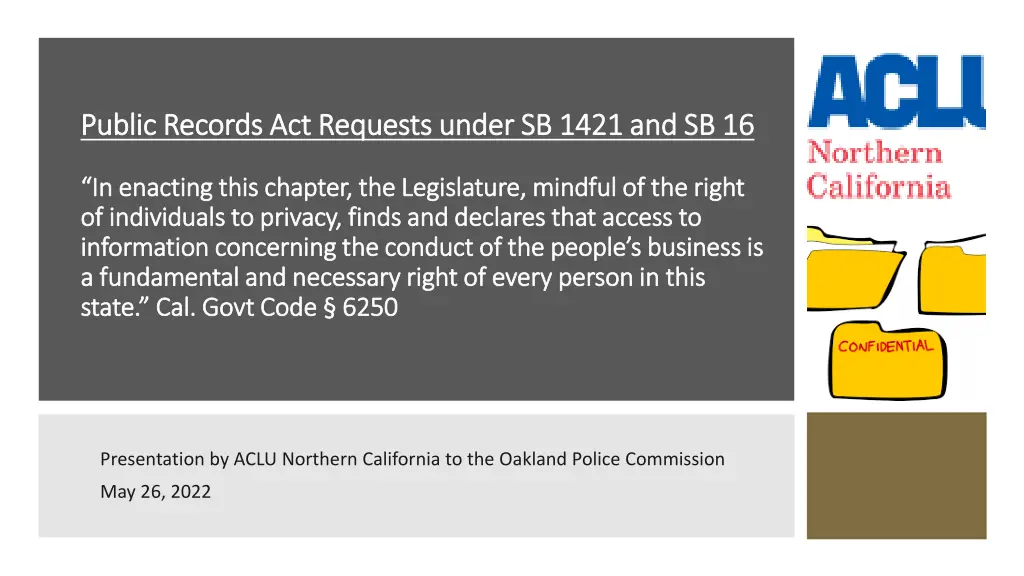
Understanding CPRA: Public Records Access Rights
Learn about CPRA rights under SB 1421 and SB 16, including who can make requests, what constitutes a local agency, and the obligations of agencies to provide access to public records promptly and efficiently.
Download Presentation

Please find below an Image/Link to download the presentation.
The content on the website is provided AS IS for your information and personal use only. It may not be sold, licensed, or shared on other websites without obtaining consent from the author. If you encounter any issues during the download, it is possible that the publisher has removed the file from their server.
You are allowed to download the files provided on this website for personal or commercial use, subject to the condition that they are used lawfully. All files are the property of their respective owners.
The content on the website is provided AS IS for your information and personal use only. It may not be sold, licensed, or shared on other websites without obtaining consent from the author.
E N D
Presentation Transcript
Public Records Act Requests under SB 1421 and SB 16 Public Records Act Requests under SB 1421 and SB 16 In enacting this chapter, the Legislature, mindful of the right In enacting this chapter, the Legislature, mindful of the right of individuals to privacy, finds and declares that access to of individuals to privacy, finds and declares that access to information concerning the conduct of the people s business is information concerning the conduct of the people s business is a fundamental and necessary right of every person in this a fundamental and necessary right of every person in this state. Cal. Govt Code state. Cal. Govt Code 6250 6250 Presentation by ACLU Northern California to the Oakland Police Commission May 26, 2022
CA PUBLIC RECORDS A CA Public Records Act CA Public Records Act Public records are open to inspection at all times during the office hours of the state or local agency and every person has a right to inspect any public record, except as hereafter provided. 6253(a) Codified at Cal. Government Code 6250 et seq. Obligations apply to any local agency Right to request from any individual member of the public
Who can make a CPRA request? Who can make a CPRA request? Notwithstanding the definition of member of the public in Section 6252, an elected member or officer of any state or local agency is entitled to access to public records of that agency on the same basis as any other person Any member of the public ( 6252)
What is a local agency under the CPRA? What is a local agency under the CPRA? Local agency includes ((Govt Code 6252(a)): Cities and counties; school district; municipal corporation; district; political subdivision; any board, commission or agency thereof; other local public agency; or entities that are legislative bodies of a local agency Public agency means any state or local agency 6252(d)
Obligations Obligations Under the CPRA Under the CPRA ( 6253(c)) Within 10 days of receipt of a request for records, a local agency MUST provide a response that includes: In unusual circumstances , the agency may extend the initial response up to 14 days Make responsive, disclosable records available for production and/or inspection Agencies may adopt rules for faster, more efficient, or greater access to records than prescribed by the minimum standards in the CPRA See e.g. Public portals for SB 1421 release of records in City of Fullerton; City of Sacramento Whether the agency has responsive records in their possession; Whether any responsive records are disclosable under the CPRA and the reasons why Estimated date and time to produce records
Non Non- -Compliance Compliance Civil enforcement litigation is the primary means of protecting the right of public access Example: Morris et al v. City of Oakland Media plaintiffs brought action to enforce PRA requests for officer misconduct records under SB 1421 The December 2021 settlement agreement requires OPD to clear its backlog of California Public Records Act requests within six (6) months and release all records related to police shootings and misconduct within 15 months, with disclosures on a rolling basis https://www.documentcloud.org/documents/21092101-morris-et-al-v-oakland-proposed- settlement
Peace Officer Records Before 1421: Penal Code Peace Officer Records Before 1421: Penal Code 832.7 832.7 Personnel records of all police officers were deemed confidential The exclusive process to disclose peace officer records required a Pitchess motion and court order (Penal Code 832.7 Except as provided in subdivision (b), the personnel records of peace officers and custodial officers and records maintained by any state or local agency pursuant to Section 832.5, or information obtained from these records, are confidential and shall not be disclosed in any criminal or civil proceeding except by discovery ). Copley Press was the 2006 Supreme Court case which held that Penal Code section 832.7 (the statute making personnel/complaint records confidential) applied to records held by external police commissions
(A) A record relating to the report, investigation, or findings of any of the following: (i) An incident involving the discharge of a firearm at a person by a peace officer or custodial officer. (ii) An incident in which the use of force by a peace officer or custodial officer against a person resulted in death, or in great bodily injury. the following peace officer or custodial officer personnel records and records maintained by any state or local agency shall not be confidential and shall be made available for public inspection pursuant to the California Public Records Act POLICE POLICE RECORDS RECORDS AFTER SB AFTER SB 1421 1421 (C) Any record relating to an incident in which a sustained finding was made by any law enforcement agency or oversight agency of dishonesty by a peace officer or custodial officer directly relating to the reporting, investigation, or prosecution of a crime, or directly relating to the reporting of, or investigation of misconduct by, another peace officer or custodial officer, including, but not limited to, any sustained finding of perjury, false statements, filing false reports, destruction, falsifying, or concealing of evidence. (B) (i) Any record relating to an incident in which a sustained finding was made by any law enforcement agency or oversight agency that a peace officer or custodial officer engaged in sexual assault involving a member of the public.
Records that shall be released pursuant to this subdivision include: all investigative reports photographic, audio, and video evidence transcripts or recordings of interviews autopsy reports all materials compiled and presented for review to the district attorney or to any person or body charged with determining whether to file criminal charges against an officer in connection with an incident, whether the officer s action was consistent with law and agency policy for purposes of discipline or administrative action, or what discipline to impose or corrective action to take documents setting forth findings or recommended findings; and copies of disciplinary records relating to the incident, including any letters of intent to impose discipline, any documents reflecting modifications of discipline due to the Skelly or grievance process, and letters indicating final imposition of discipline or other documentation reflecting implementation of corrective action Records that shall be released pursuant to this subdivision also include records relating to an incident in which the peace officer or custodial officer resigned before the law enforcement agency or oversight agency concluded its investigation into the alleged incident What does records include? (Pen. Code 832.7(C)
(A) To remove personal data or information, such as a home address, telephone number, or identities of family members, other than the names and work-related information of peace and custodial officers. Mandatory Redactions under SB 1421 (B) To preserve the anonymity of complainants and witnesses. (C) To protect confidential medical, financial, or other information of which disclosure is specifically prohibited by federal law or would cause an unwarranted invasion of personal privacy that clearly outweighs the strong public interest in records about misconduct and serious use of force by peace officers and custodial officers. (D) Where there is a specific, articulable, and particularized reason to believe that disclosure of the record would pose a significant danger to the physical safety of the peace officer, custodial officer, or another person.
During an active criminal investigation, disclosure may be delayed for up to 60 days or until the D.A. determines whether to file criminal charges, whichever occurs sooner. The agency shall provide, in writing, the specific basis for the determination that the interest in delaying disclosure clearly outweighs the public interest in disclosure. This writing shall include the estimated date for disclosure of the withheld information. Withholding Records Under SB 1421 Information withheld by the agency shall be disclosed when the specific basis for withholding is resolved, when the investigation or proceeding is no longer active, or by no later than 18 months after the date of the incident, whichever occurs sooner If criminal charges are filed related to the incident in which force was used, the agency may delay the disclosure of records or information until a verdict on those charges is returned at trial or, if a plea of guilty or no contest is entered, the time to withdraw the plea
Police Records After SB 16 Police Records After SB 16 (effective Jan 1, 2022) Records with no sustained finding of misconduct must be retained for at least 5 years and records related to sustained misconduct must be retained for a minimum of 15 years. Records shall be provided at the earliest possible time and no later than 45 days from the date of a request for their disclosure, unless the law specifically allows more time to respond. Records relating to an incomplete investigation must be released if an officer resigned during the investigation. Whistleblowers and victims will be added to the list of persons whose identities are required to remain confidential. Attorney-client privilege will not prohibit the disclosure of factual information provided by the public entity to its attorney or factual information discovered in any investigation conducted by, or on behalf of, the public entity s attorney. Additionally, the privilege will not cover attorney billing records unless the records relate to a legal consultation between the public entity and its attorney in active and ongoing litigation. An agency may charge only the direct cost of duplication for the production of these records, in line with the Public Records Act, and may not charge for searching or redacting records. A public agency hiring a peace officer must review any files for Section 832.7 disclosure before hiring the officer.
Peace Officer Records After SB 16 Discloseable Peace Officer records include any record relating to: A sustained finding involving a complaint that alleges unreasonable or excessive force A sustained finding that an officer failed to intervene against another officer using force that is clearly unreasonable or excessive. a sustained finding that a peace officer or custodial officer engaged in conduct including, but not limited to, verbal statements, writings, online posts, recordings, and gestures, involving prejudice or discrimination against a person on the basis of race, religious creed, color, national origin, ancestry, physical disability, mental disability, medical condition, genetic information, marital status, sex, gender, gender identity, gender expression, age, sexual orientation, or military and veteran status. a sustained finding that the peace officer made an unlawful arrest or conducted an unlawful search.
SB 1421 & SB 16 Apply to All Records Requests Walnut Creek Peace Officers Association v. City of Walnut Creek (ACLU NorCal as Intervenors) Case No. N19-0109 (Feb 8, 2019) Union argued that SB 1421 only applied to records created in 2019 or later Consolidated 6 cases from Walnut Creek, Concord, Richmond, Martinez, Antioch, and Contra Costa Sheriff s Office Court held that increasing the public s access to law enforcement or other records[] must be applied to records dating back to before the new laws enactment PRA obligations are triggered by a PRA request, not by the date of police misconduct or when related personnel records created.
Personnel Files of Peace Officers are Generally Confidential Records SB 1421 and 16 amended Cal Penal Code 832.7 to include categories of records that are considered exempt from confidentiality and now subject to disclosure under the Public Records Act (Gov t Code 6250 et seq.) Summary
Summary After SB 1421 & SB 16 amends Penal Code 832.7 Peace officer personnel records are confidential except for records relating to: Use of force involving discharge of a firearm at a person Use of force resulting in death or great bodily injury Sustaining findings of sexual assault against members of the public Sustained findings of dishonesty A sustained finding involving a complaint that alleges unreasonable or excessive force. A sustained finding that an officer failed to intervene against another officer using force that is clearly unreasonable or excessive. sustained finding of an unlawful arrest or an unlawful search sustained finding of conduct involving prejudice or discrimination against any person Before SB 1421 & SB 16 All peace officer personnel records considered confidential files that were only disclosable by court order under Cal Penal Code 832.7 *sustained finding must be made by a law enforcement or oversight agency Copley case was decided in 2006 before the legislature passed SB 1421 and SB 16, so of course any exceptions to confidentiality under these provisions (codified at PC 832.7(b)) would override the Copley decision and those records excepted by statute are now disclosable.
AB 2557 This bill would make records and information obtained from records maintained by an agency or body established by a city, county, city and county, local government entity, state agency, or state department for the purpose of civilian oversight of peace officers subject to disclosure pursuant to the California Public Records Act. Pending Legislative Changes
Recommendations to Recommendations to Oakland Police Commission Public platform to house release of records Engage in regular (bi-annual or more) training for Commissioners and staff on CPRA rules and any legislative updates Adopt a policy/practice of regular reporting from the Oakland Police Department to the Commission to include a section on CPRA requests including, but not limited to: number of requests received, number of requests acknowledged with a statutory compliant response, number of requests where records produced, number of requests determined to have no responsive documents, and number of requests denied. This reporting should also include progress on compliance with Morris and any other cases. Determine what staffing, resourcing, and/or policy reforms can improve the Commission s and/or Police Department s compliance with the CPRA
QUESTIONS? Allyssa Victory, Esq. Staff Attorney, ACLU Northern California Criminal Justice Program avictory@aclunc.org avictory@aclunc.org

